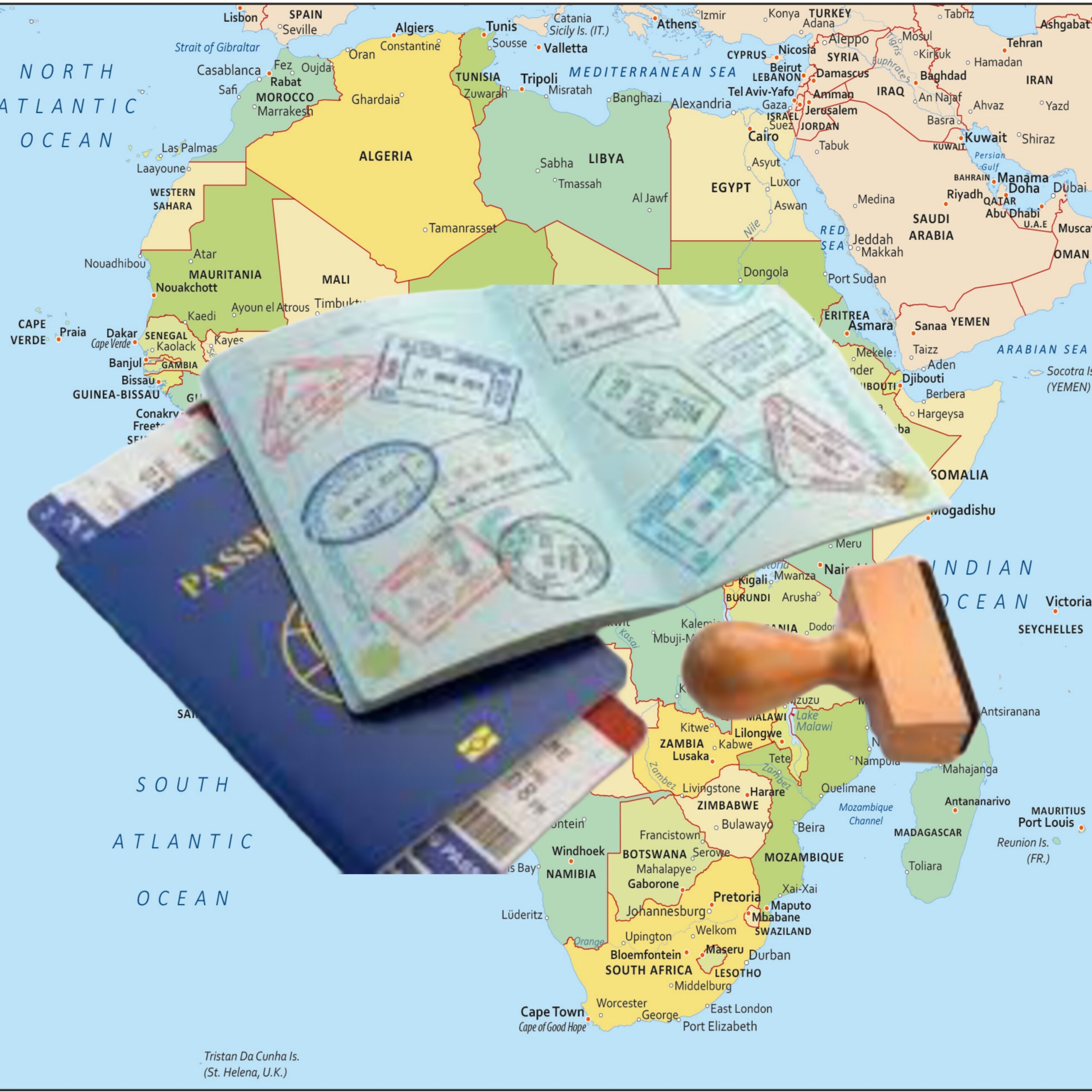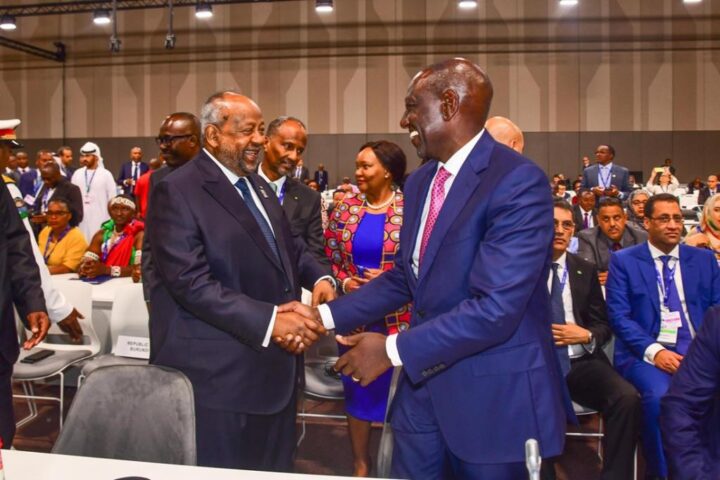Africa – the world’s second-largest continent with 54 recognized countries – has again been reminded of a low-hanging fruit that must be plucked in the continent’s enlightened self-interest. This was as President William Ruto of Kenya told an international conference in Congo-Brazzaville that his country is set to end visa requirements for all African visitors by the end of this year. Kenya was in 2022 ranked 31st on Africa’s Visa Openness Index which measures the extent to which each country in Africa is open to visitors from other African countries. President Ruto is now poised to improve this ranking, with the realization that allowing extant visa restrictions on fellow Africans was bad for business.
In the words of Ruto: “When people cannot travel, businesspeople cannot travel, entrepreneurs cannot travel, we all become net losers.” The loud cheers and standing ovation his speech got from the summiteers point to the fact that free movement across Africa is exactly what informed minds yearn for the continent. However, as desirable as this is, visa processes and processing in Africa remain a complicated web of regulations and agreements. This is despite the fact that visa-free travel within the continent has been a goal of the African Union (AU) over the past decade. The AU launched its African passport in 2016 so that all African citizens can travel across the continent without visas – despite this, that passport has remained widely unacceptable.
Join our WhatsApp ChannelREAD ALSO: 25 Visa-Free, Visa-On-Arrival Countries For Nigerians
While a 2022 AU-backed report identified Seychelles, The Gambia and Benin as the only African countries that offer entry to all African citizens without a visa, Rwanda has emerged as a pioneer in the push for visa-free or visa-on-arrival access for African travelers. This progressive step by the East African country has not only promoted tourism but has also positioned the country as a leader in intra-African collaboration. Ethiopia numbers among the countries with progressive visa policies with its visa-on-arrival system for all African citizens. This move has resulted in increased tourism, greater business opportunities, and a heightened sense of regional integration.
Even as a bloc, African countries are getting progressive in the way they are guarding their borders against migrants and visitors from neighboring countries. The East African Community (EAC), comprising Kenya, Tanzania, Uganda, Rwanda, Burundi, and South Sudan, has realized the economic advantages of regional cooperation and implemented the EAC Visa, which allows citizens of member countries to move freely within the region. As a result, tourism in these countries has seen significant growth, with travelers now having the flexibility to explore multiple nations within a single trip. Conversely, countries like South Africa and Nigeria have maintained stringent visa regulations. For instance, Nigeria’s visa policy requires pre-arrival visas for most African countries, posing a significant obstacle to free movement within the continent.
On the 20th of August 2019, Nigeria partially closed its land borders with Benin, Togo, Niger, Cameroon and Chad – citing the disturbing level of smuggling of arms and ammunition into the country, as well as food items like rice, cooking (vegetable) oil, poultry, tomato, flour and pasta. Months later, the closure of Nigeria’s land borders became fully consolidated, with further restrictions on the import and export of goods through land borders. Currently, the country’s borders are still closed to the Niger Republic, although as part of ECOWAS sanctions against the military interregnum in the country.
This exclusionism is even worse in South Africa, the continent’s most industrialized and prosperous country, which remains largely closed to other Africans but more welcoming to the wider world. While citizens of only 15 African nations can travel to South Africa without a visa, holders of 28 different European passports can freely enter the country. Two years after the African Union asked members to commit to abolishing visa requirements for all Africans by 2018, South Africa did the opposite in 2015 when it announced stricter regulations that were widely criticized. Hit by a recession and a drop in tourist numbers, the country caved in and recently announced that it was relaxing travel rules in the hope of reviving its struggling economy.
It is heartwarming that South Africa is now easing up its visa restrictions for Africans, even if on a reciprocal visa waiver basis. It recently signed one with Ghana which will take effect on November 1, 2023. The agreement between both countries allows travelers to transit through, depart from, and stay in the territory of the other country for up to 90 days without a visa, as long as they are not working. South Africa also signed a similar waiver with Kenya last year. These bilateral agreements are expected to boost tourism and trade between the two countries, as well as strengthen their bilateral relations. Yet, Prime Business Africa advocates that it should apply to all Africans.
Imposing visa requirements implies missed economic opportunities for intra-regional trade, and the local service economy (such as cross-country medical services or education). The World Bank has noted that easing visa requirements for Africans traveling within the continent could boost intra-African tourism, trade, and investments. This could lead to an estimated increase in income by over $20 billion, benefiting various sectors of African economies. The impact of visa restrictions on the ease of conducting business across borders dampens the great promise offered by the African Continental Free Trade Area (AfCFTA) which seeks to create a single market for goods and services across Africa. African entrepreneurs often face daunting visa requirements, leading to increased costs and delays.
The African Development Bank (AfDB) reported that intra-African trade increased from 10.2 per cent in 2000 to 16.6 per cent in 2017, and is expected to reach 25 per cent by 2023 with the implementation of the AfCFTA. This powerful tool for enhancing intra-African mobility and integration, fostering a sense of African identity and solidarity among Africans who share common values and aspirations won’t be maximized if Africans are not allowed to move freely across the continent. Easier cross-border movement fosters trade and investment, as entrepreneurs and businesses can more readily access new markets and consumers. It can also stimulate tourism and the exchange of goods and services, leading to increased economic opportunities.
The newspaper understands that security can be enough reason for African nations not to allow free movement. For instance, the 2019 land border closure in Nigeria was putatively informed by the need of the authorities to stem the rising inflow of arms smuggling, foreign fighters, drug peddling, and other prohibited items into Nigeria’s trade environment. However, Rwanda’s experimentation with visa-free or visa-on-arrival access for African travelers affirms that visa restrictions can be eased without compromising national security. Countries like Nigeria which are conscious of the security risks can implement a visa-on-arrival system or an e-visa system which would allow Immigration authorities to screen travelers more thoroughly and effectively monitor them throughout their stay.
Prime Business Africa believes that the time has come for African countries to reevaluate their immigration policies and embrace more inclusive measures with regard to visa policies. They must recognize that the unity and cooperation that come with allowing free movement across the continent are the keys to unlocking Africa’s vast potential. A more open African continent could lead to the creation of jobs across various sectors, including tourism, hospitality, and services. As businesses expand and new industries develop, the demand for a diverse workforce will increase, providing jobs and income opportunities for the local population. More so, Free movement enables the free exchange of ideas, knowledge, and expertise. It is however our expectation that President Ruto will walk the talk.
















![Gender Activism An Economic Necessity In Africa [PBA Editorial]](https://www.primebusiness.africa/wp-content/uploads/2023/11/vaw-720x480.png)

Follow Us